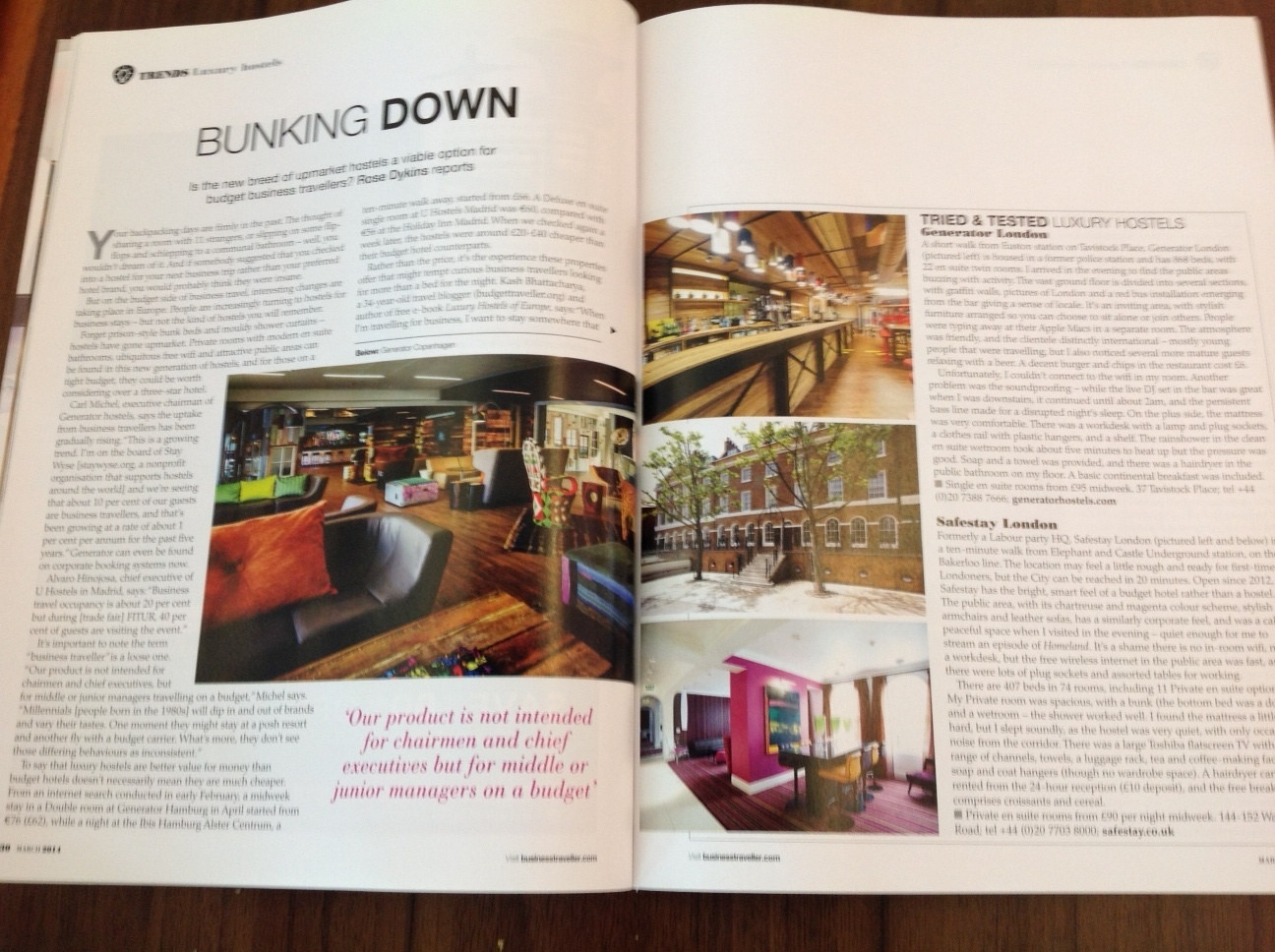The March 2014 edition of Business Traveller (grab a copy from your nearest airport lounge or nice hotel!) has an interesting article on "Luxury Hostels". Specifically, it was about why business travellers might want to look at staying in a private room in a higher end hostel, rather than in a 3*-4* hotel as they might normally do by default. It wasn't so much about price, much more about the location, atmosphere, decor, activities etc.
If you're used to booking into hostels, then working out if a hostel is likely to be a good fit for you or not is something you'll already know about. However, if you typically book into mid-range hotels, how do you check if a private room in an interesting/trendy hostel is likely to work well for a business trip? Especially around noise. (Fun bar to hang out in during the evenings = good reason to stay at a hostel, all night disco heard throughout hostel until 3am = bad for business trip!)

